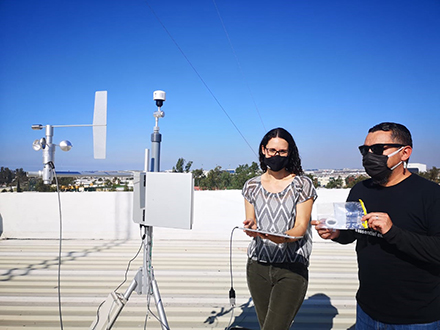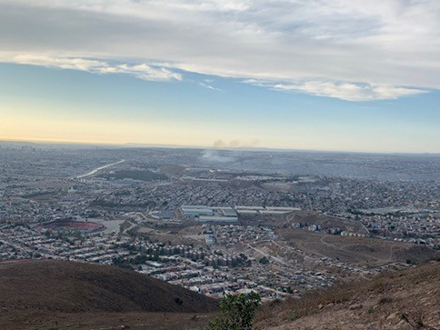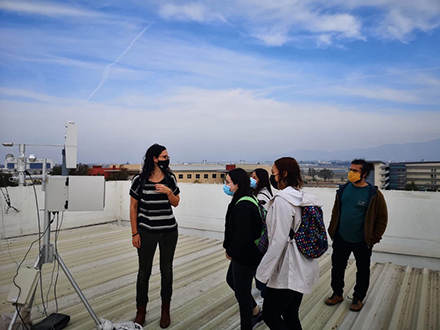By Lara Schwarz

My awareness of global health disparities started in Biko, a small village in Mali that I visited during my sophomore year of high school. I made connections with town residents who faced many challenges, such as food insecurity and gastrointestinal illnesses. The experience made me wonder: What gives me the privilege of, and access to, a healthy life that the residents of Biko don't have? This question has underpinned much of my work and continues to drive my global environmental health research. That high school trip led me to obtain my undergraduate degree in Ecological Determinants of Health at McGill University, where I studied the role of geography, social context, and environment in determining health outcomes at the local and global scale.
Several professional and academic positions in global health work have allowed me to further refine my research focus. From the Peruvian Amazon, where I researched the environmental drivers of rodent-borne disease, to France, where I investigated environmental injustices stemming from incinerator emissions, I delved into the social and environmental determinants of disease from different angles and in diverse contexts. During my time working in the Pandemic and Epidemic Diseases Department at the World Health Organization, I further recognized the particular vulnerability of some countries and regions to infectious hazards and disease threats.
As a Ph.D. candidate in the University of California, San Diego, and San Diego State University Joint Doctoral Program in Global Health, I have continued to conduct research at the intersection between climate and health. I am a student in the Climate Change Epidemiology Lab under the mentorship of Tarik Benmarhnia, associate professor at the University of California, San Diego, where I study the impact of environmental exposures - such as heat waves and air pollution - on hospitalizations and low birth weight and associated health disparities.
As a San Diego resident for the past four years, I have started applying the same questions I had in Biko to the Tijuana border region. Borders are a physical barrier to human mobility, but they don't obstruct the transport and flow of environmental exposures. For instance, wildfires igniting on either side of the border can drive harmful smoke exposure to the entire region.

The San Diego-Tijuana border region is an ideal local setting to explore a global health question: How do differing social conditions influence the health impacts of environmental exposures? The COVID-19 pandemic and wildfires are concurrent public health disasters that are affecting us locally; they are also increasingly prevalent global health risks that demand attention. Fine particulate matter, one of the main components of wildfire smoke, is associated with a range of adverse health effects and has been suggested as a driver of severe COVID-19. Particulate matter can weaken the respiratory system and reduce the body's ability to produce an immune response, which can enable viral entry and replication.
As a fellow in the University of California GloCal Health Fellowship Program supported by the Fogarty International Center and National Institute of Environmental Health Sciences, I am monitoring air pollution on both sides of the border to quantify health impacts. Along with Tarik Benmarhnia, my mentors include Sarah Aarons, assistant professor at Scripps Institution of Oceanography, who is sharing her expertise in geochemistry, and Maria Evarista Arellano and Javier Emmanuel Castillo Quinones, professors at the Universidad Autonoma de Baja California (UABC), who are providing guidance in the data collection process.

Data from air pollution samplers will be used to validate wildfire smoke models to isolate wildfire-specific fine particulate matter and characterize its burden on cardio-respiratory hospitalizations - and more specifically, on COVID-19 outcomes - on both sides of the border. The region's climatological uniformity and sociodemographic and neighborhood-level diversity is unique and can help us understand what factors play a role in people's vulnerability to climatic hazards, locally and between the U.S. and Mexico - two distinct countries with similar public health issues.
The vulnerability of this region to climate change highlights the need for binational collaborations to protect populations from increasingly destructive wildfires. Studying the dynamics of environmental exposures in a diverse binational region is an opportunity to understand some of the local and global drivers of unequal disease distribution. This research will promote border health initiatives between the San Diego and Tijuana regions and inform warning systems and other efforts to protect populations from the concurrent global health threats posed by COVID-19 and climate change.

